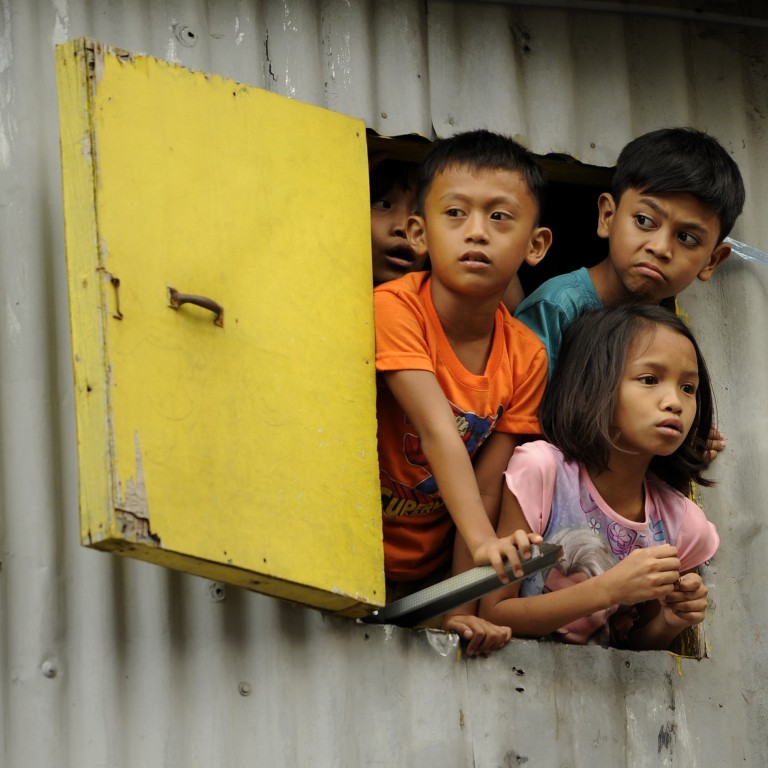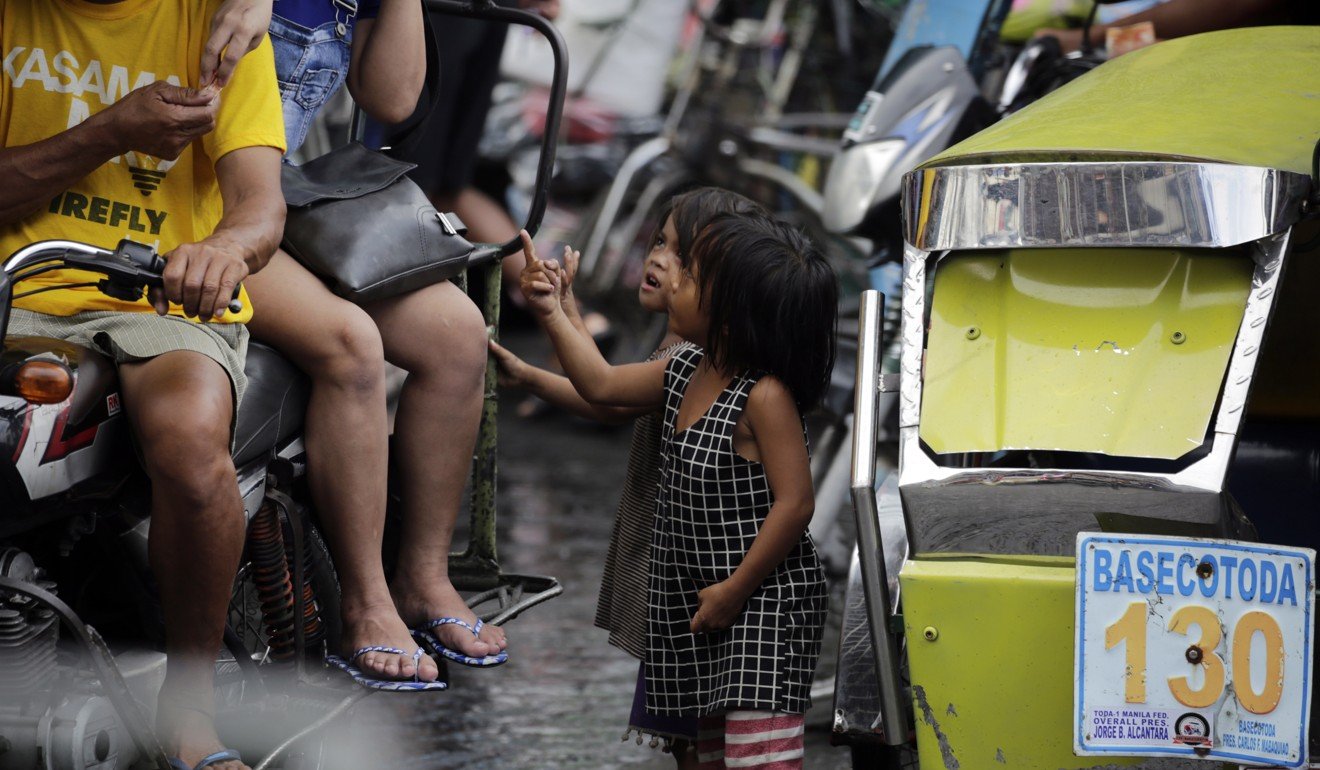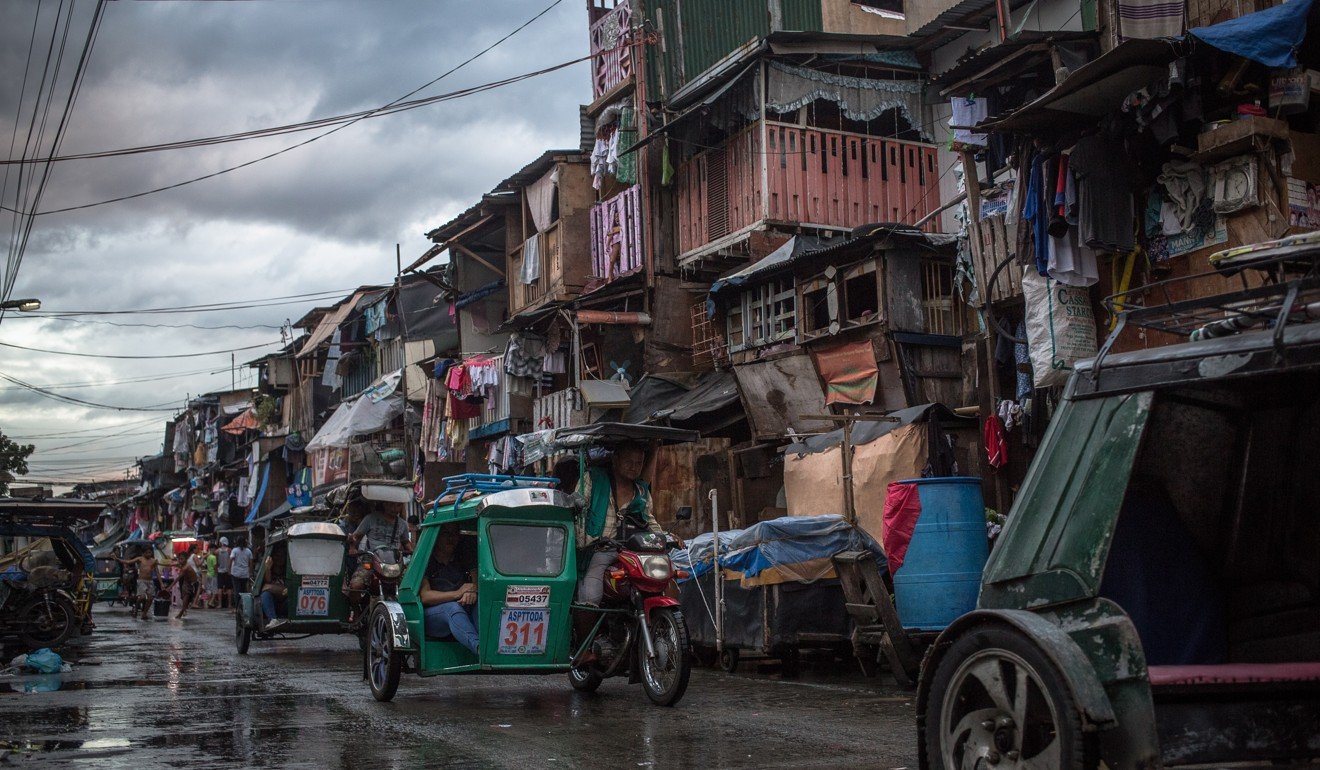
In Philippines, Duterte’s drug war finds a new target: 9-year-olds
- The president is pushing to lower the age of criminal responsibility from 15 to 9, arguing that drug syndicates exploit the law by using juveniles to ply their trade
- A new bill stipulates sending juvenile offenders to reformation houses – but campaigners say the conditions in these are little different to adult prisons
Children’s organisations including Unicef and Save the Children say the proposals, which would reduce the age of criminal liability from 15, risk victimising some of the country’s poorest and most vulnerable children.
“Children are in a situation where they have to commit crime for survival,” said Eule Rico Bonganay, secretary general of Salinlahi Alliance for Children’s Concerns. “Because even government data shows that the profile of children in conflict with the law are mostly … from poor families, they obtained a low level of education and they live in a community where there is a high rate of crime.”

On Monday, the committee on justice at the House of Representatives voted to advance a bill supported by the president that would impose “mandatory confinement” on children aged 9-14 who commit serious crimes such as murder and drugs offences.
Committee chairman Salvador Leachon hailed the bill, which is supported by power players including the former president Gloria Macapagal Arroyo, as a step to “protect our children from being used by ruthless and unscrupulous criminal syndicates”.
A separate bill that would lower the age of criminal responsibility to 12 is making its way through the Senate, where there is greater resistance to Duterte’s agenda. A majority of both houses of parliament must agree to a bill before it becomes law.
One more death in Duterte’s war on drugs: trust in Philippine police
The Presidential Communications Operations Office did not respond to a request for comment, while a secretary for the House justice committee said its members could not discuss the bill while it was under deliberation.
Although the House bill stipulates sending juvenile offenders to reformation houses known as Bahay Pag-asa, children’s advocates say that the reality of such facilities is often little different from adult prison.
Tricia Oco, the head of the government’s Juvenile Justice and Welfare Council, this week told a Senate committee that some Bahay Pag-asa she had inspected had “subhuman conditions” and were “worse than prison”.

Youth advocates also fear that a lack of dedicated facilities for juveniles and overcrowding mean children will inevitably end up being imprisoned alongside hardened adult criminals.
“It’s very alarming that young people will be mixed with adults inside prison,” said Ralph Ivan, president of the Youth Peer Education Network, adding that such juveniles were at risk of physical and sexual abuse and likely to be lured into more serious criminality.
Ivan said children recruited by gangs often had no choice and should not be treated as criminals.
“They do it because they are being exploited and abused in exchange for money … or even the lives of their families in the communities that are being run by narco-politics and big drug lords,” he said.
Is there a Hollywood ending to Duterte’s drug war?
Some 4.2 million families in the Philippines were living in poverty in 2012, according to Unicef, up from 3.6 million in 1991.
Although the bill has widespread political support, youth organisations are calling on the government to instead properly implement a juvenile justice law passed in 2006 which focuses heavily on diversion and reformation.
“There is a need to increase the number of social workers, there is a need to increase the number of staff who will implement the law,” said Rico Bonganay.
“This is not a problem of the law,” he added. “There is a failure of the government to implement the law.”

